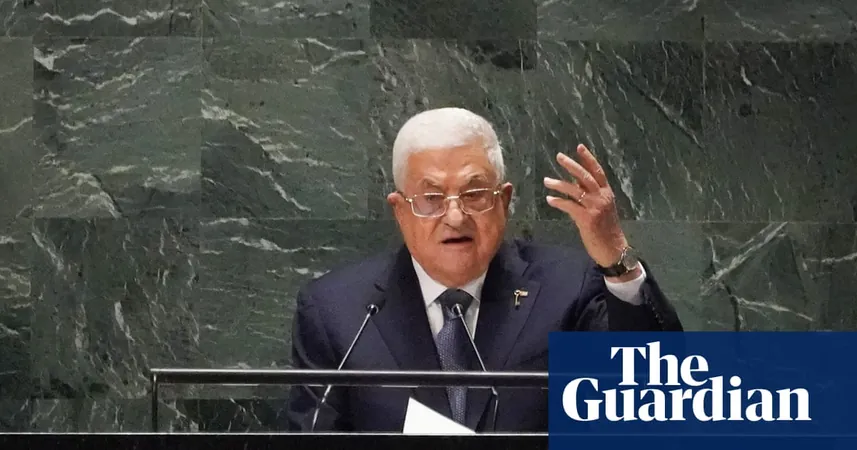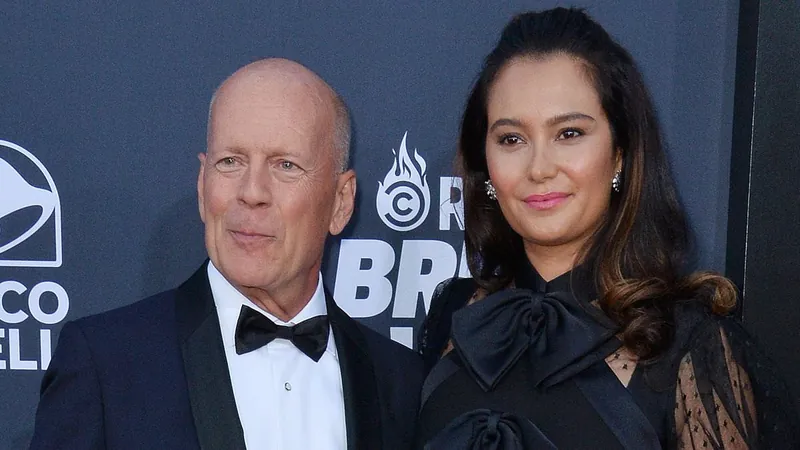
US Bars Palestinian Authority Leaders from UN Summit: What You Need to Know
2025-08-29
Author: Ken Lee
US Immigration Moves to Restrict Palestinian Leaders' Access for UN General Assembly
In a controversial move ahead of the UN General Assembly meeting in September, the United States has begun to deny and revoke visas for several members of the Palestine Liberation Organization (PLO) and the Palestinian Authority (PA), as confirmed by the State Department on Friday.
Among those affected is Mahmoud Abbas, the President of the Palestinian Authority, who had intended to deliver an address at the UN. Abbas's office reacted with astonishment, stating that the visa decision infringes upon the UN "headquarters agreement."
Legal Tensions Amidst Diplomatic Customs
The United States, while acknowledging that it is the host of the UN in New York and generally should not refuse access to officials for the assembly, maintains that it is abiding by the agreement by allowing the Palestinian mission to participate. The State Department claimed that this action is consistent with national security interests, highlighting the need to hold the PLO and PA accountable for their commitments and actions regarding peace efforts.
Aligning with Israel's Hardline Stance
This move further aligns the Trump administration's policies with Israel's right-wing government, which opposes the notion of a Palestinian state. Israeli officials have consistently characterized the PA, which holds limited authority in the occupied West Bank, as equivalent to Hamas, its Islamist adversary.
Echoing sentiments often voiced by Israeli leaders, the State Department accused the Palestinians of engaging in "lawfare"—raising grievances against Israel in international legal forums—and urged the PA to abandon its quest for unilateral recognition of a hypothetical Palestinian state.
International Reactions and Ongoing Struggles
Israeli Foreign Minister Gideon Sa'ar publicly praised the Trump administration for this decisive stance. Meanwhile, Stéphane Dujarric, a UN spokesperson, emphasized the necessity for all states, including Palestine, to be represented at the summit. He expressed hope for a resolution to the visa disputes.
As the power dynamic shifts, the Israeli government faces increasing pressure both domestically and internationally to cease its military operations in Gaza. Prime Minister Benjamin Netanyahu has ordered forces to advance on Gaza City, which has suffered catastrophic damage, resulting in a humanitarian crisis that the UN has described as a famine.
The Broader Implications for Palestinian Statehood
The PLO, which was established in 1964, remains an essential player in any future discussions about a Palestinian state, alongside the PA, which was created as part of efforts to provide governance to potential Palestinian territories. Upcoming actions by countries like Australia, Canada, the UK, and France to recognize a Palestinian state at the UN assembly could further complicate the situation, as these moves have already sparked outrage in Israel.
Activists have long called on the US to deny visas to leaders from nations notorious for human rights violations. Nevertheless, such petitions have typically been dismissed. A significant historical precedent occurred in 1988 when the assembly convened in Geneva to accommodate PLO leader Yasser Arafat after the US barred his entry.
As tensions rise and the situation in Gaza deteriorates, the international community watches with bated breath, hoping for a resolution that might pave the way for lasting peace.






 Brasil (PT)
Brasil (PT)
 Canada (EN)
Canada (EN)
 Chile (ES)
Chile (ES)
 Česko (CS)
Česko (CS)
 대한민국 (KO)
대한민국 (KO)
 España (ES)
España (ES)
 France (FR)
France (FR)
 Hong Kong (EN)
Hong Kong (EN)
 Italia (IT)
Italia (IT)
 日本 (JA)
日本 (JA)
 Magyarország (HU)
Magyarország (HU)
 Norge (NO)
Norge (NO)
 Polska (PL)
Polska (PL)
 Schweiz (DE)
Schweiz (DE)
 Singapore (EN)
Singapore (EN)
 Sverige (SV)
Sverige (SV)
 Suomi (FI)
Suomi (FI)
 Türkiye (TR)
Türkiye (TR)
 الإمارات العربية المتحدة (AR)
الإمارات العربية المتحدة (AR)